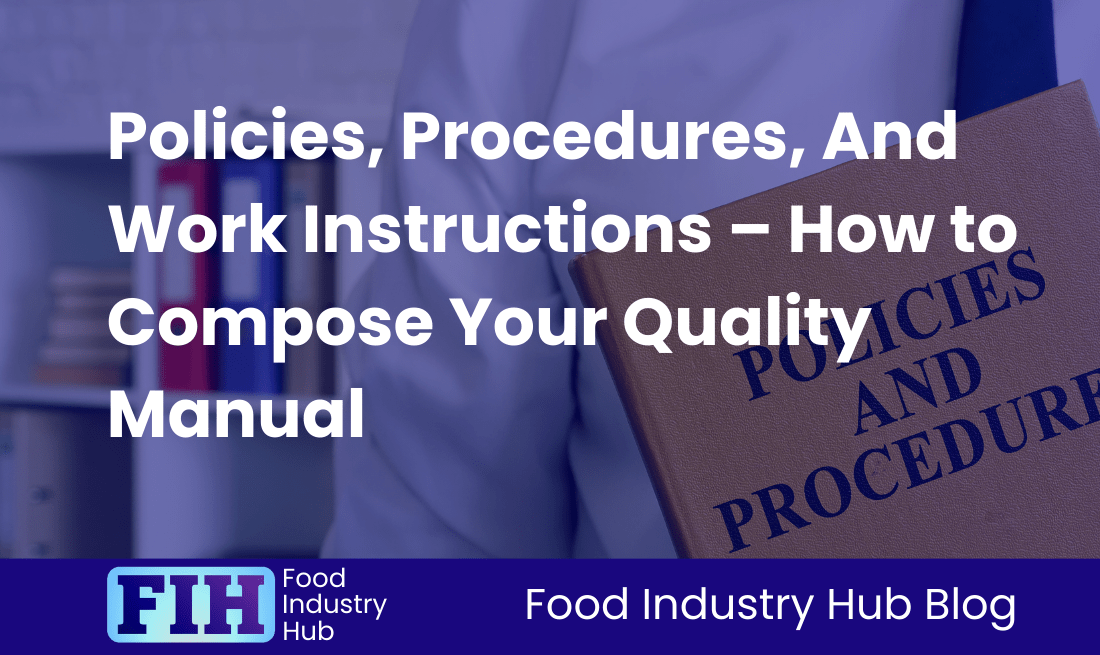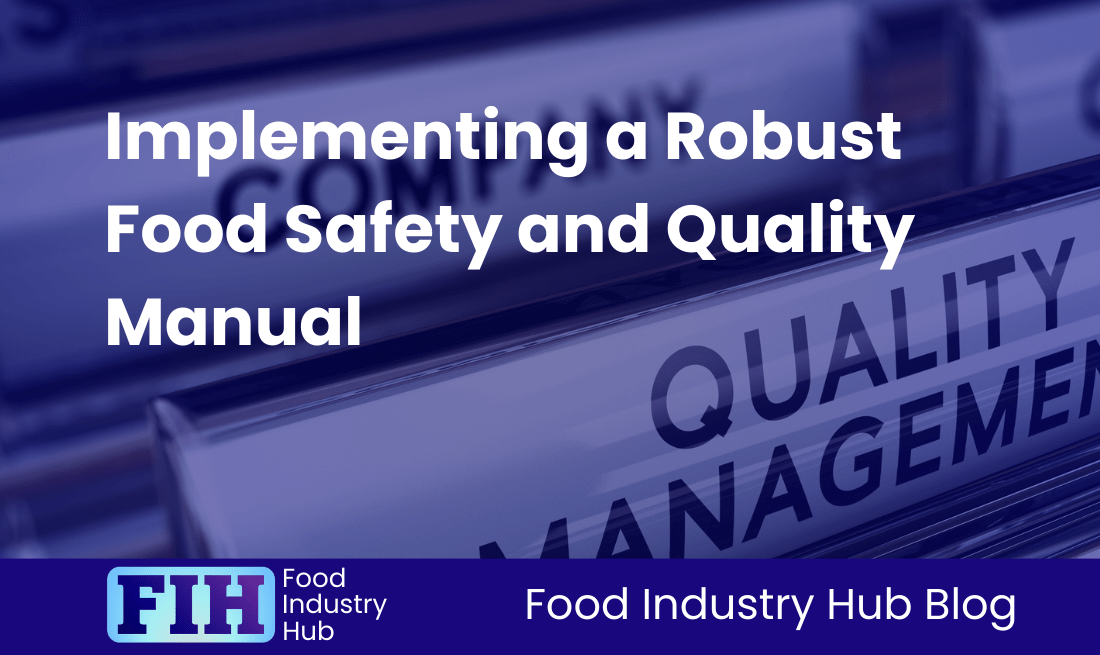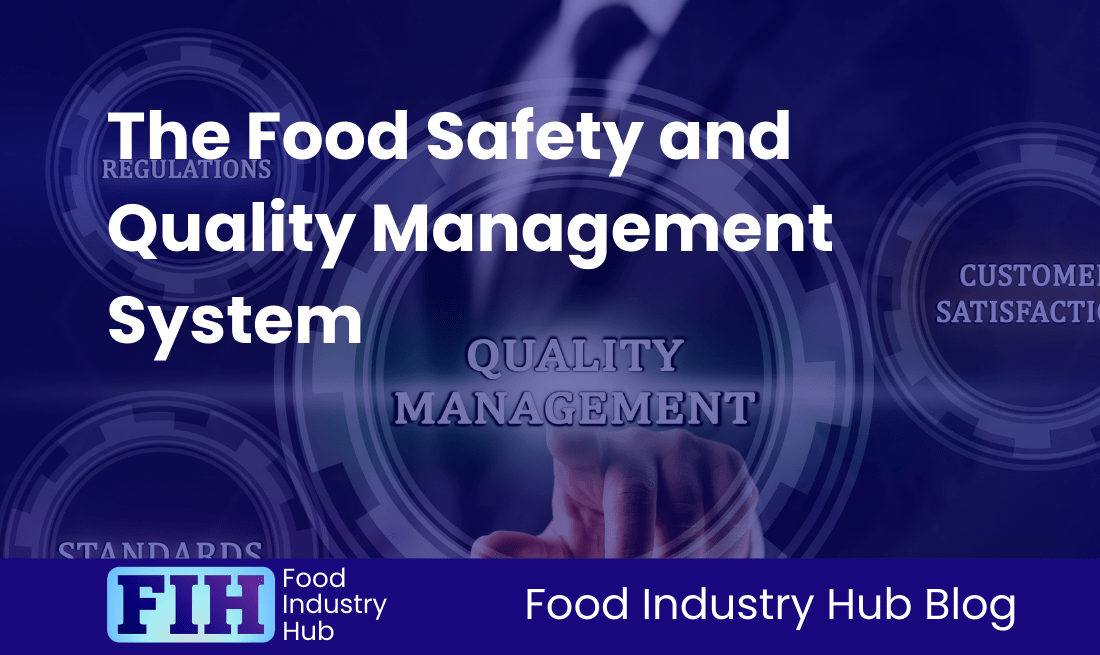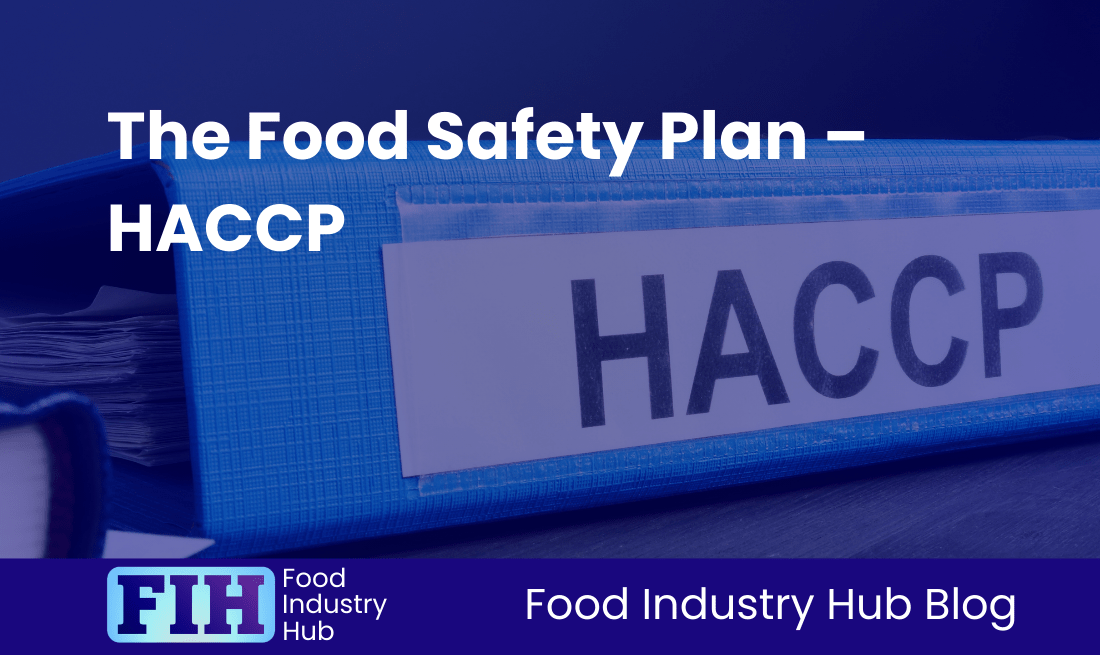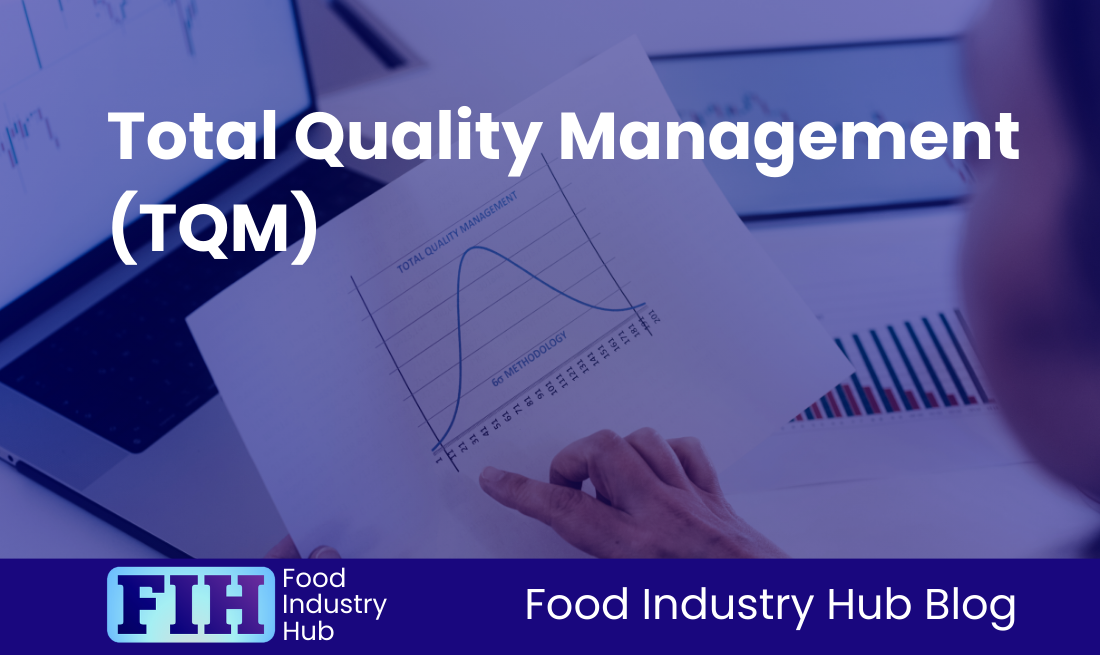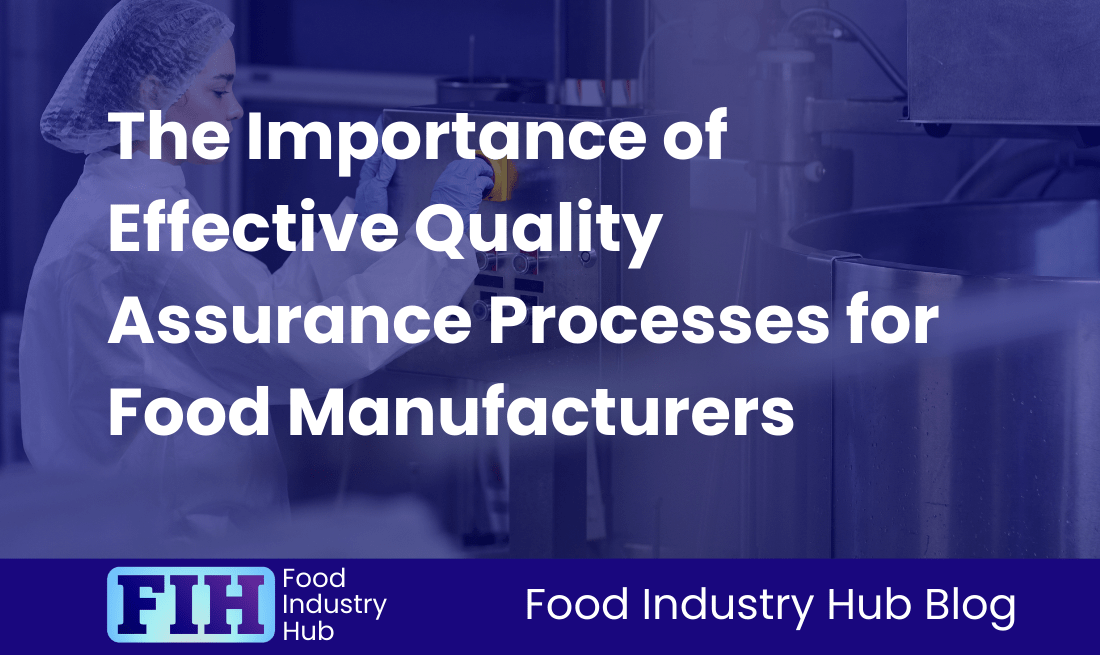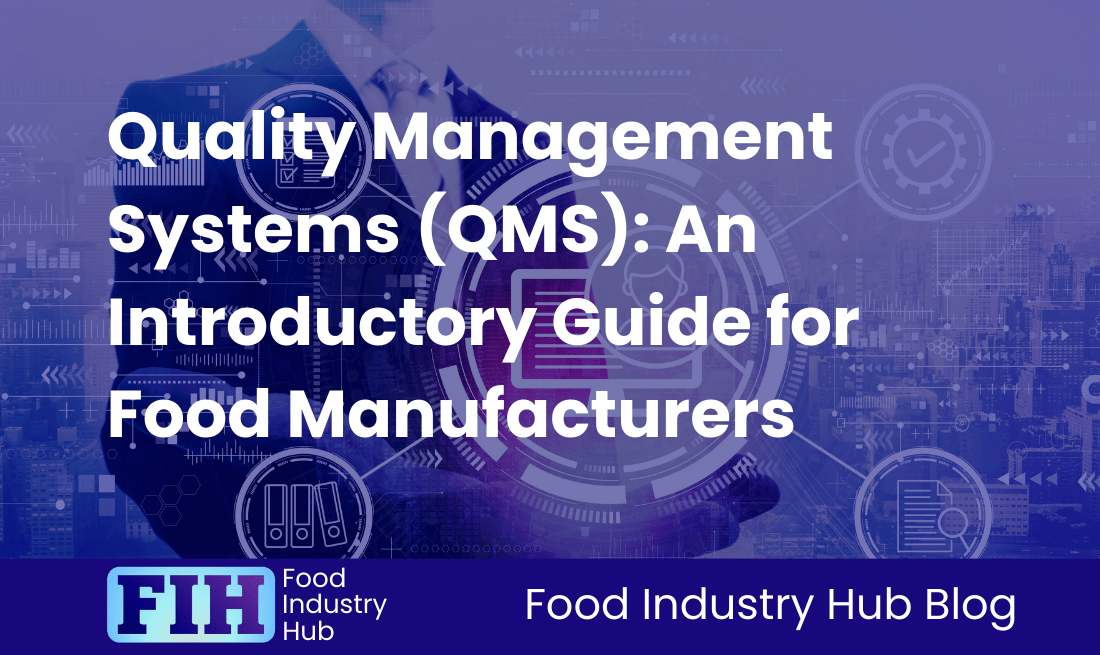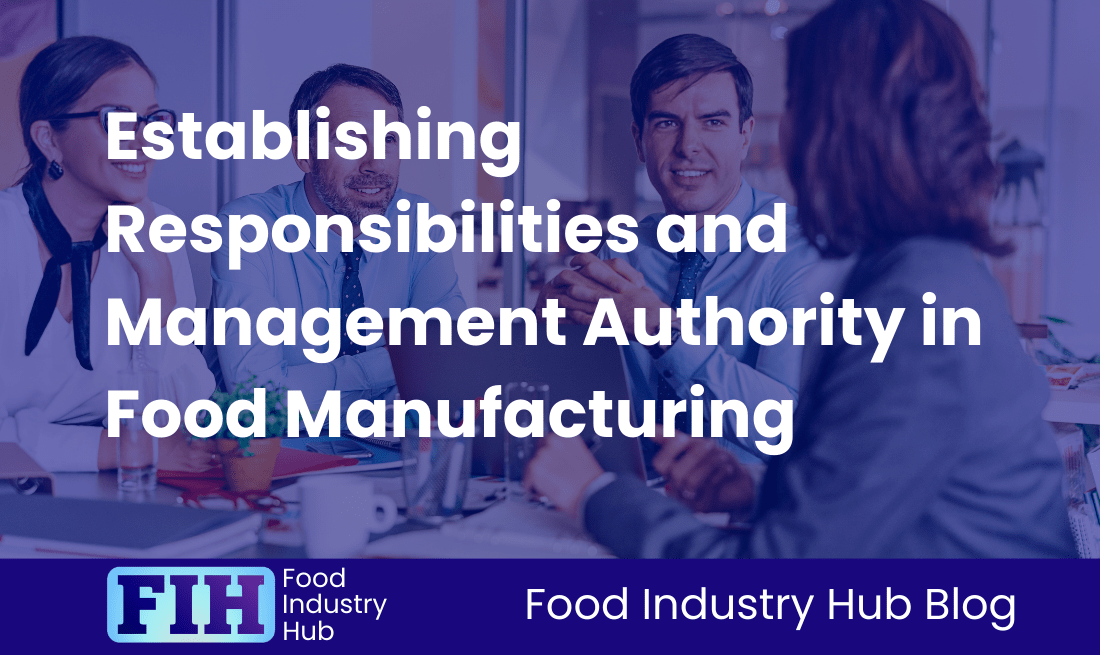Know: Standard Operating Procedures (SOPs)
Introduction
The adoption of Standard Operating Procedures (SOPs) contributes significantly to food safety, operational uniformity, and regulatory observance within the food manufacturing industry. These procedures are meticulously created guidelines designed to standardise tasks, boost quality control, and mitigate risks of contamination. SOPs serve dual purposes: they act as a blueprint for process standardisation and a strategic instrument for operational efficiency.
SOPs are comprehensive, written directives that lay out the necessary steps and processes to complete specific tasks. Within food manufacturing, they key in establishing practices for safe, uniform, and compliant production. These robust documents offer both clarity and responsibility, guiding employees on tasks such as food handling, storage, preparation, and sanitisation. By transforming operational practices into standardised, repeatable methods, SOPs significantly raise the industry’s performance and offer protection against foodborne illnesses.
The significance of SOPs in operations is immense. They have a direct effect on quality control, ensuring that food products uphold safety and quality standards. SOPs, by standardising processes, reduce variability in outputs and strengthen compliance with regulatory guidelines set by authorities like the FSA, USDA, and FDA. This streamlines audit processes and provides legal protection in occurrences of food safety incidents. In addition, SOPs enhance workplace safety by outlining protocols for food and equipment handling, subsequently reducing accidents and promoting a secure environment for staff.
Viewed from a leadership aspect, effective SOPs implementation upholds sound management methods. This practice encourages transparency and accountability within an organisation, as clear guidelines decrease the possibility for confusion and promote a culture of accountability among staff. A leader’s focus on SOPs sets the scene for improved operational efficiency. By reducing costs linked to errors and compliance failures, SOPs optimise overall business performance.
This article introduces pivotal themes surrounding SOPs, covering SOPs in food manufacturing, their creation and implementation, the significance of regulatory compliance, the embrace of digital change, and the resultant impact on operational efficiency. By exploring these themes, food manufacturing professionals will gain insights into the fundamental nature of SOPs and how to utilise these instruments for enhanced safety and efficiency in their operations.
Key Takeaways
Standard Operating Procedures (SOPs) play a significant role in food manufacturing, not just in compliance with regulations, but also in enhancing safety, efficiency, and operational success.
The Purpose and Definition of SOPs in Food Manufacturing
Standard Operating Procedures — often referred to as SOPs — act as detailed written directives providing clarity on how to execute specific tasks. SOPs simplify intricate tasks by supplying step-by-step directions across a variety of functions, such as production, sanitation, and storage. By ensuring consistent and uniform operations, SOPs contribute to increased product safety and quality. These procedures play an essential role in reducing errors, preventing miscommunication amongst staff members, and limiting deviations from established protocols, thereby maintaining the integrity of food products.
The Role of SOPs in Maintaining and Enhancing Food Safety and Regulatory compliance
SOPs act as the foundation of the food safety management systems employed within manufacturing operations. They present clear guidelines for handling, preparing, and storing food, thereby ensuring compliance with the regulatory requirements put forth by governing bodies like the FSA, EC, USDA and FDA. Compliance with these documented protocols helps food manufacturers successfully pass audits and inspections, while also mitigating risks associated with foodborne illnesses and recalls, especially those involving allergen labelling. An effective SOP framework reflects a company’s commitment to food safety and enhances their ease of navigating through compliance complexities.
Contribution of Technology and Digital Transformation to SOP Operations
Recent advancements in technology have significantly improved the management and effectiveness of SOPs within the food manufacturing industry. Automation and digital tools have made the creation, updating, and distribution of SOPs more efficient, thus enabling real-time monitoring of compliance. Digital platforms facilitate performance analytics for continuous improvement and easy identification of areas requiring modification. This seamless technological integration not only bolsters document processes but also simplifies employee training and improves communication around SOP guidelines.
Impact of Well-managed SOPs on Operational Efficiency and Risk Management
Effectively managed SOPs enhance operational efficiency by standardising processes, which in turn allow employees to perform their tasks accurately and consistently. Standardisation reduces the potential for errors, thereby improving training efficiency and enabling quicker onboarding of new employees. The implementation of robust SOPs reduces risks related to contamination and accidents, protecting both employees and consumers. Operational efficiency goes hand-in-hand with risk management, where streamlined SOPs promote proactive measures for compliance and safety, thereby safeguarding the brand’s reputation and market position.
Food Industry Hub Management Systems can significantly boost the effectiveness of your food safety and quality management system, leading to improved confidence and elevated quality assurance throughout your operations.
Fundamentals of SOPs in Food Manufacturing
Purpose and Definition
Standard Operating Procedures, or SOPs, in food manufacturing form a set of key written instructions designed to guide everyday operations. Their primary role lies in ensuring uniformity and safety throughout the production process. SOPs help food manufacturers remain compliant with food safety regulations such as the Food Safety Modernisation Act (FSMA) and the globally recognised Hazard Analysis and Critical Control Points (HACCP) approach. They specifically work to reduce risks associated with food hazards, such as allergen cross-contamination and microbiological issues, by creating standardised practices for all team members involved in food handling. Effective SOPs not only drive operational efficiency but also build consumer trust by demonstrating a commitment to food safety and quality management. SOPs form an indispensable part of any well-functioning food safety management system as they provide clear instructions for carrying out critical tasks [Source: Food Safety Magazine].
Components of SOPs
An effective SOP includes nine integral components that collectively promote clarity and consistency within food manufacturing processes:
- Title and Purpose: This portion provides a concise description of the SOP’s objective, for instance, “Cleaning Equipment”.
- Scope: Defines the sections, functions, and processes the SOP governs, outlining who exactly will be impacted by these protocols.
- Responsibilities: This part designates the roles and job titles responsible for executing the procedures delineated in the SOP.
- Process: Detailed, step-by-step instructions are provided in this section, illuminating any unique actions required to accomplish the task. Visual aids can be incorporated for complex tasks.
- Safety and Quality Control Measures: Here, key control points for safety and hygiene checks are stated to preserve the integrity of food products throughout the process.
- Tools and Equipment Needed: This component lists all the necessary equipment to carry out tasks effectively, including specific tools and their conditions.
- Documentation and Recordkeeping: Identifies the records needed for conformity and traceability, with records maintained for a minimum duration dictated by regulations and compliance standards.
- References: Relevant guidelines and codes of practice are cited for context to maintain adherence to external requirements.
- Review and Change History: Documenting updates ensures that SOPs remain up-to-date and relevant to operational needs and adjustments in regulations.
Function of SOPs in Promoting Food Safety
SOPs play a multifaceted role in promoting food safety. They are instrumental in ensuring adherence to food regulations and standards. A significant number of FDA recalls arise due to allergens, often because procedure implementation wasn’t sufficiently thorough [Source: FDA]. Comprehensive SOPs assist in managing key control points and outlining preventative controls that are vital for risk reduction within food production processes. They detail specific safety protocols, such as sanitation practices that should happen throughout operations to stay compliant and safe. Notably, successful SOPs facilitate traceability through comprehensive documentation practices. This allows manufacturers to conduct root cause analyses during product recalls and uphold public health standards.
Global Compliance Frameworks
Diverse compliance frameworks guide the formation and application of SOPs across the global food manufacturing industry. Standards such as the USDA’s directives call for SOPs for sanitary operations, and the FDA’s Food Code underlines the need for written procedures that govern safe food handling and employee hygiene [Source: FDA]. The Brand Reputation through Complaince Global Standards (BRCGS) stipulate that SOPs should follow a risk-based approach, especially concerning product safety and supplier management. The Codex Alimentarius also delivers guidance for creating SOPs that meet international safety and quality standards, enabling food manufacturers to stay aligned with the necessary best practices and regulatory requirements for successful international operations [Source: FAO].
Key Terminology: Essentials of SOPs
Explanation of HACCP
Hazard Analysis and Critical Control Points (HACCP) is a systematic, preventive model for food safety that identifies and mitigates risks throughout the food production process. SOPs play a significant role in implementing HACCP principles by providing explicit documentation of monitoring procedures, significant thresholds, and corrective actions. The methodical implementation of these SOPs allows food manufacturers to uphold safety standards across their operations.
Scope of SOPs in Food Manufacturing
The applicability of SOPs spans all aspects of food manufacturing, from the procurement of raw materials right through to final product delivery. They serve as an essential toolkit not just for guaranteeing safety and regulatory compliance but also for enhancing operational efficiencies by providing clear workflow guidance. SOPs empower employees to carry out their roles effectively by clearly stipulating responsibilities, thereby ensuring that safety and quality are prioritised at all stages of production.
Assurance Schemes
The Brand Reputation through Complaince Global Standards (BRCGS) is a critical certification programme that emphasises food safety and quality. It requires manufacturers to adhere to comprehensive SOP documentation, thereby setting up and maintaining procedures that are vital for complying with safety regulations and consumer expectations. These SOPs effectively document key processes that promote a culture of food safety and adequate risk management within the supply chain. This systematic approach to conformity aligns with international quality standards. The BRCGS Food standard is one among many GFSI-benchmarked standards which uphold the production of safe food.
By understanding these core principles and the significant components of SOPs, professionals working in the food manufacturing industry can boost operational success and uphold robust standards in food safety and quality management.
Digital Transformation and SOPs
Enhancements to Standard Operating Procedures (SOPs) implementation and management are at the heart of the digital transformation reshaping the food manufacturing sector. By digitising SOPs, the industry can move away from traditional paper-based methods, paving the way for streamlined operations, error reduction, and uncomplicated regulatory compliance. Digital SOPs enable efficient updates, centralised access, and seamless integration with other processes. The culmination of these advantages results in enhanced operational efficiency, precision, and safety.
Importance of MES: How Manufacturing Execution Systems Facilitate SOP Implementation
Manufacturing Execution Systems (MES) are increasingly important tools for executing SOPs in food manufacturing. They promote real-time control and visibility over production operations, ensuring SOPs are correctly followed. MES gives operators uncomplicated access to standardised workflows to maintain operational consistency and compliance. For instance, MES systems automatically fetch SOPs related to specific tasks, decreasing human error and improving traceability within production lines. Also, MES systems are capable of cementing compliance with digital records, providing a transparent audit trail for regulatory inspections and quality assurance protocols.
Benefits of Cloud-Based SOP Solutions: Exploring the Advantages of Software as a Service (SaaS)
Cloud-based solutions, chiefly delivered through Software as a Service (SaaS) models, offer manifold benefits for managing SOPs in food manufacturing. Software solutions enhance accessibility, enabling employees to access SOPs from a variety of devices—an advantage for organisations with multiple sites or remote work agreements. Additionally, cloud solutions enable automatic updates to SOP documentation, ensuring all employees are trained on the latest procedures. The scalability of SaaS applications considerably reduces infrastructure costs while allowing manufacturers to swiftly adapt to regulatory changes and operational demands, thereby enhancing overall compliance.
SOP Data-Driven Compliance: Informed Best Practices and Adherence
Systematic analysis of operational data is central to maintaining adherence to SOPs in food manufacturing. Manufacturers can identify areas where SOP effectiveness falls short and develop targeted interventions to boost compliance. This process involves not only updating SOPs in response to notable trends or deviations but also promoting ongoing staff training and improvement plans. For example, data from compliance checks can inform best practices by highlighting repeated non-conformance in specific procedures, leading to revisions of those SOPs to address the underlying issues.
Key Terminology: Digital Transformation and SOPs
IIoT: Definition and Relevance for Food Manufacturing Processes
In food manufacturing, the Industrial Internet of Things (IIoT) refers to a network of interconnected devices and sensors. Use of IIoT technologies enhances real-time monitoring of process parameters and ensures that food safety SOPs are followed. This network offers insights into equipment performance and production conditions, allowing for adaptive management of SOPs to maintain quality and compliance throughout the manufacturing process.
LIMS: Laboratory Information Management Systems’ Relevance to SOPs
Laboratory Information Management Systems (LIMS) are integral to ensuring that quality control processes in food manufacturing adhere to established SOPs. LIMS facilitate tracking of laboratory samples, tests, and results while maintaining data integrity—an important factor in regulatory compliance. They ensure that testing procedures align with industry standards by automating data capture and reporting, thus reducing human error and supporting an efficient workflow that integrates seamlessly with production operations.
ERP: Integration of Enterprise Resource Planning Systems for SOP Implementation
Enterprise Resource Planning (ERP) systems contribute to the effective implementation of SOPs across diverse functions in food manufacturing. By integrating processes such as procurement, inventory management, and production planning, ERP systems align SOPs with organisational goals. They facilitate real-time data sharing across departments, ensuring all units follow standardised procedures in sync with production schedules and compliance requirements. This coordinated approach supports transparency, efficiency, and regulatory adherence, crucial for successful food manufacturing operations.
Sign-up for the Food Industry Hub Mail Service
We regularly produce new content for food industry professionals, and the Food Industry Hub Mail Service is the best way to stay up to date with the latest additions.
Signup today to be added to the Food Industry Hub mailing list.
Practical Applicability and Risk Management
SOPs and Waste Management: Minimising Waste Through Effective Practices
Strong Standard Operating Procedures (SOPs) for waste management in food manufacturing ensure hygiene maintenance, prevention of contamination, and improved operational efficiency. These SOPs handle the systematised management of waste, including organic, packaging, and hazardous wastes, by outlining clear guidelines for disposal, storage, and handling. The importance of proper waste segregation cannot be overemphasised, as it facilitates safe disposal and mitigates cross-contamination risks. For instance, segregating organic waste from recyclables and hazardous materials streamlines treatment processes.
To maintain sanitation in the production facility, containers for waste should be pest-proof, covered, and labelled clearly, deterring attraction from pests and rodents. The risk of bacterial growth and other issues linked to waste accumulation can be reduced by implementing waste removal schedules. Thorough staff training on the significance of proper waste management and non-compliance consequences reinforces these SOPs.
SOPs and Recall Measures: Achieving Efficient Product Recalls
SOPs tailored to product recall processes are indispensable for organised, quick responses to potential food safety issues. These procedures establish a clear plan for the recall of potentially unsafe products from the market, including effective traceability systems often assisted by batch numbers for rapid identification. Suitable communication channels should be defined for the prompt notification of all relevant stakeholders, including regulators and consumers.
Conducting mock recall exercises can test the effectiveness of these procedures, offering organisations the chance to optimise their SOPs based on real-world situations. By doing so, consumer health is safeguarded, and brand integrity is protected, demonstrating that structured recall measures can ward off substantial reputational damage during crises.
Pest Control Measures: Safeguarding Compliance with SOPs
Fundamental to upholding strict food safety standards are cohesive pest control SOPs. These protocols should detail regular pest infestation inspection frequencies and monitoring for all storage and production areas. Documentation of corrective action plans for any pest activity is necessary, alongside the establishment of immediate reporting systems for pest sightings.
Included in these pest management strategies should be sanitation guidelines that help minimise attractants like waste storage and handling practices that may encourage pests. Compliance with pest management regulations is further enhanced by periodical evaluations through third-party audits, thereby strengthening the overall cleanliness of the food production environment.
SOPs and Supply Chain Resilience: Formulating Strategies to Offset Disruptions
SOPs play an important role in fortifying supply chain resilience by providing the foundational structure for standardised procedures, such as supplier assessments, inventory management, and quality control. By laying out standardised protocols, organisations are well-prepared to navigate through risks related to supply chain unpredictability and unexpected disruptions. For instance, creating contingency plans and clear lines of communication with suppliers can equip organisations to face potential issues, assuring prompt responses when systemic problems emerge. Embedding these elements in their operational frameworks can enhance the robustness and adaptability of food manufacturing facilities in an evolving market landscape.
Conclusion
The Significance of SOPs in Food Manufacturing
Standard Operating Procedures (SOPs) are fundamental pillars in food manufacturing, contributing significantly to food safety, regulatory compliance, operational efficacy, and risk management. The benefits of SOPs are vast and far-reaching:
Firstly, SOPs play a primary role in improving food safety. They offer detailed guidelines for the handling, storage, preparation, and sanitation of food, thereby reducing the risks of contamination that could result in serious public health concerns. SOPs form the foundation in preventing foodborne illnesses and workplace accidents, consequently ensuring the safety of both consumers and employees.
SOPs are instrumental in demonstrating a manufacturer’s commitment to abide by the regulatory requirements stipulated by authorities such as the USDA and FDA. By consolidating inspections and audits, SOPs offer documented evidence of adherence to food safety and hygiene standards, saving invaluable time and resources during compliance checks.
Operational efficiency is another significant edge provided by SOPs. By standardising procedures, they guarantee consistency in task execution, thus enhancing product quality and bolstering customer trust. This reduction in variability lends itself to efficiencies and reduces the chance for errors and miscommunications [Source: Log10 Solutions].
In the process of capacity building and continuous improvement, SOPs serve as excellent training tools, enabling employees with the necessary knowledge for effective task execution. SOPs assist in developing a safety and accountability culture within companies, paving the way for operational excellence [Source: SF Magazine].
The Influential Role of Digital Advancements in SOPs
The advent of technological innovations in SOP development and implementation is profound. Several advancements have arisen as a result of this digital transformation, reshaping SOP management in food manufacturing:
One such advancement is digital documentation, which elevates accessibility and efficiency. SOPs can now be updated in real-time via cloud-based platforms, ensuring that employees have the latest, most accurate information at their fingertips, minimising errors stemming from outdated data.
Integration of SOPs with comprehensive food safety management systems is another technological leap. Automated collection of data and real-time compliance tracking enable swift alerts and efficient oversight of adherence to established protocols. These technologies provide for the rapid identification of possible risks, supporting continuous improvements based on insightful and actionable data.
Digital tools are also reshaping the training process. By incorporating interactive elements such as quizzes and videos, these tools enhance comprehension and accountability among employees. This approach also facilitates remote training and instant feedback, boosting workforce competence and confidence in adherence to SOPs.
Benefits of SOPs
SOPs offer a diverse range of benefits that are essential for the success of food manufacturers. They are integral in ensuring food safety and quality while reducing the risk of contamination and foodborne illnesses. Additionally, these procedures streamline regulatory audits and inspections, safeguarding brand integrity.
SOPs’ uniformity and efficiency diminish variability in production processes, instilling a culture of accountability among employees. By implementing structured workflows, organisations not only shield themselves from potential liabilities but also enhance customer trust by consistently delivering quality products. As food manufacturing continues to evolve in an intricate regulatory landscape, the ongoing digitalisation of SOPs boosts their adaptability and effectiveness, adding more value to operational excellence.
The strategic design and implementation of SOPs are essential for establishing a resilient and efficient operational framework in the food manufacturing sector. SOPs, Integrated with technological advancements, play a vital role in ensuring enterprises maintain high safety, compliance, and overall performance levels, even amidst changing market conditions.
About The Food Industry Hub Knowledge Centre
The Food Industry Hub knowledge centre delivers informative content on a variety of topics pertinent to the food manufacturing industry.
You can return to all topics by clicking here.
From The Food Industry Hub Blog
Expanding on this topic with related content from our blog.

